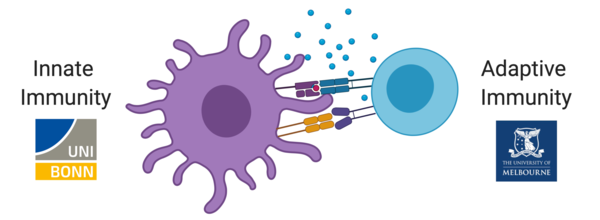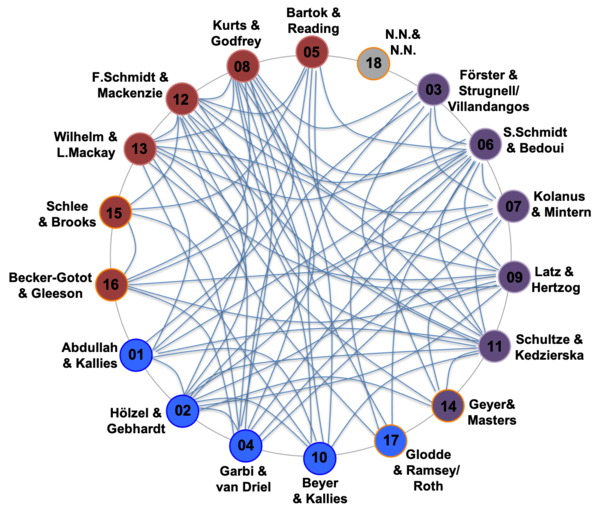The principal research focus of the joint PhD program is the intersection between innate and adaptive immunity in the context of infection, leveraging off the substantial and complementary expertise for innate and adaptive immunity in Bonn and Melbourne, respectively. More specifically, the program addresses questions related to pathogen sensing and how the ensuing innate immune responses contribute to protective T cell immunity.
These aspects are be examined at the molecular and cellular level in dendritic cells and other myeloid cells using a wide range of in vivo infection models (malaria, typhoid fever, Legionnaire’s disease, influenza virus, herpes simplex virus) and cutting-edge technologies (epigenetics, in vivo imaging, bioinformatics modelling, transcriptomics).
Myeloid antigen presenting cells, i.e. dendritic cells and macrophages, are key inducers and regulators of adaptive immune responses. They are essential in immunity to infection and vaccination but can also drive inappropriate immune responses that cause inflammatory disorders. The members of this program have already considerably advanced our knowledge of these cells and the adaptive immune processes they induce and regulate. However, many aspects of myeloid APCs functions still remain poorly understood. Increasing the understanding of their function remains a key topic in immunology.

Bonn and Melbourne are internationally visible and strong research hubs of immunological research. Areas of core expertise in Bonn include the role of local APCs in disease models, immune pattern sensing and transcriptional immune regulation. Melbourne is internationally recognized for their excellence in research on T cells, NKT cells, DC subsets and for studying microbial infections.
Both areas are highly synergistic and allow for a deeper scope and quality of research. This is evident by the various first and co-authorships in leading research journals and completed PhD theses since the program was first established in 2016.
The scientific and personal exchange between Melbourne and Bonn has created a highly conducive environment for the training of our students and has substantially improved research quality with many students centrally involved in various immunological discoveries.
Since our projects investigate different aspects of the interaction between myeloid cells and adaptive immunity, they are also tightly interconnected and facilitate close collaborations between projects, on a technical and conceptual level. This allows our students to also employ a wide set of techniques, benefitting from access to state-of-the-art facilities and also access to expertise of their supervisors at 2 distinct research sites to address cutting-edge research questions in a world-class teaching environment.
